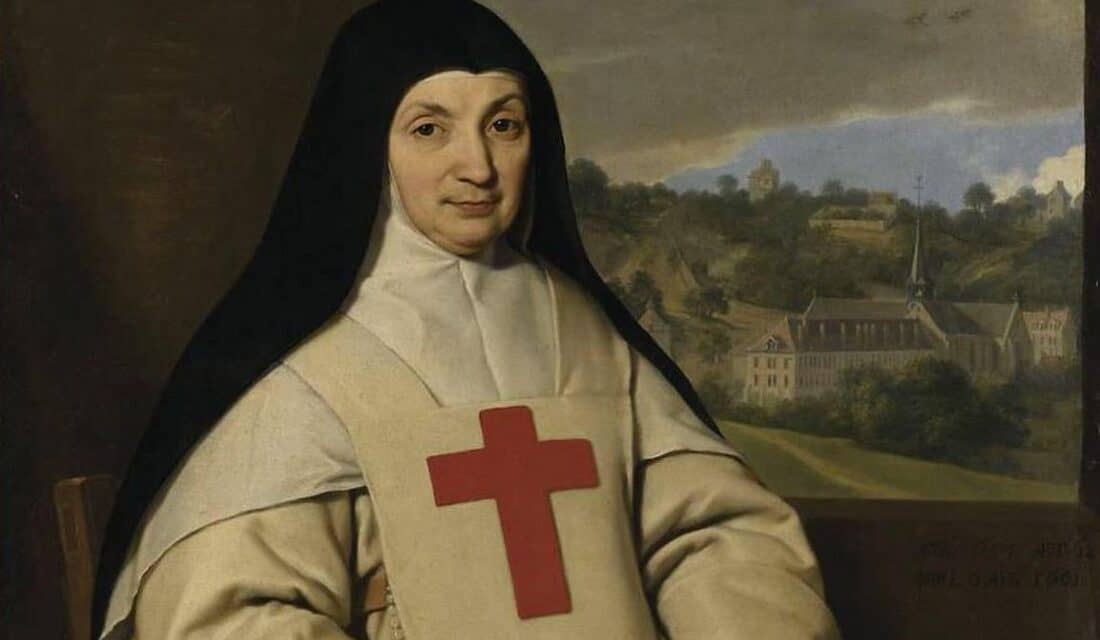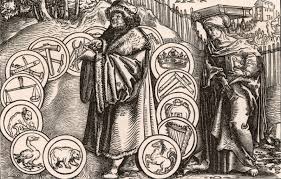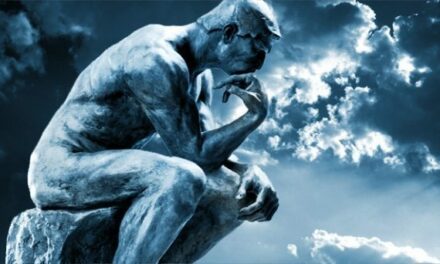The title of this 128th Episode is Backing Up.
… because once again we’re backtracking a bit to hop into the story of Church History earlier than where our last few episodes have taken us. We’re focusing this time on what happened in France during the late 17th and into the 18th century.
This period saw a massive struggle between the French monarchy and two groups; Catholic Jansenists and Protestant Huguenots. At stake was the throne’s claim that it alone had the power to determine the religion of the French people.
France was the most populous and wealthy country in Europe. It was also the most feared, admired, and imitated. By the time of the French Revolution in 1789, the population was 28 million.
From the late 17th century to the Revolution, the Court at Versailles, the main residence of the French kings, was the center of political life. But a mix of disparate factors led to a growing disillusionment with the Crown. Philosophes engaged each other in Parisian salons in political discussions that implemented dangerous new ideas; to the Crown anyway. And once the King found out about these dangerous liaisons, they became downright lethal to those who engaged in them. As the power of the French court grew, Masonic lodges popped up all over, advocating more subversive ideas. Illegal books and broadsides were printed by a clandestine press. All these challenged Versailles’s political dominance in the second half of the 18th century. A powerful “court of public opinion” emerged to dare the status quo into change.
France’s monarchs wanted to protect their inheritance rights while expanding the kingdom’s economic and political power over more of Europe and overseas. Continental Wars often spilled over into the colonies. Louis XIV occasionally referred to “French Europe” and France’s ongoing conflict with Spain. But after his passing, France often teamed with Spain in opposition to England and other European powers.
After the American victory at the Battle of Saratoga in 1778 during the War for Independence, Louis XVI, to spite the English, supported the Americans in their quest to gain independence from the British. But this French aid took an ironic turn. Louis abetted revolutionaries who aimed to throw off a monarchy in favor of a democratic republic, while at the same time adding to France’s already massive debt.
In Late Spring of 1789, Louis was forced to call a meeting of the French Parliament, called the Estates-General to deal with the now intense fiscal crisis. After intense debate, delegates of the French people declared they represented the “nation” choosing that word rather than ”kingdom” and invited members of the clergy and nobility to join them. Many did. On June 17, the Assemblée Nationale formed and claimed it, rather than the King, represented the realm.
This was a severe blow to a principle that had found varying degrees of expression in Europe for hundreds of years; that is, the Divine Right of Kings.
Earlier, in his work Politics Drawn from the Very Words of Holy Scripture, Jacques Bossuet [boo-sway], advisor to Louis XIV, justified the divine right of kings by citing Scripture. He wrote, “God is the King of kings: it is for Him to instruct them and to rule them as His ministers. Listen then, Monseigneur, to the lessons which he gives them in His Scripture, and learn from the examples on which they must base their conduct.” He said, “Rulers act as the ministers of God and as his lieutenants on earth. It is through them that God exercises his empire.” Bossuet argued the king’s power was absolute. But the king wasn’t to act like a despot issuing arbitrary and selfish decrees. He was in covenant with his subjects and was called to care for them the way a father cares for his children.
According to divine right theory, kingship was a sacred position, manned by someone uniquely called to occupy the center of the religious sphere. Without him, chaos would descend. His lineage stretched back to Adam thru mythical figures like Pharamond, Clovis, Pepin, and Charlemagne. From the Middle Ages on, writings knowns as the Mirrors of Princes called on the French monarch to be pious, just, and good; while avoiding wanton luxury, cruelty, and moral weakness.
At the king’s coronation, the archbishop of Reims anointed him with sacred oil and blessed his gloves, scepter, and ring. The king swore an oath to uphold the Catholic faith. If his subjects rebelled against, since he was a God-ordained sacred person in a sacred office, they deserved death. In 1757, Robert Damiens attempted to assassinate Louis XV. He was pulled apart before a cheering crowd of thousands. A subversive word against His Majesty earned the author time in prison.
Louis XIV became king at age five but due to his age, wasn’t allowed to rule till he was 22. As he waited for the throne, France was torn apart by civil war in which his agents were barely able to eke out a victory. Traumatized by what he saw during this time, Louis determined to short-circuit future revolts by establishing an absolute monarchy. He learned well how to rule under the watchful eye of the shrewd politician Cardinal Mazarin. He came to control of France by a sophisticated system of rewards and honors that kept everyone beholden to his favor. He understood the threat of various religious factions all vying for control and set a Gallican, a French form of Catholicism for the realm, regardless of what they might profess to believe.
Since 1516, the year before Luther published his 95 Theses, French kings selected bishops for the French church. They filled the positions with loyal nobles. When Pope Innocent XI rejected Louis XIV’s naming of bishops and his appropriation of funds from vacant bishoprics, the king, with approval of the Clergy, encouraged Bossuet to draw up a Declaration of Gallican Liberties of 1682, stipulating that kings “were not subject to any ecclesiastical power in temporal affairs.”
The result was that French bishops had sweeping authority to rule both in temporal and spiritual matters. Besides ordinations and baptisms, they mandated that religious books could be published only with their permission. They regularly called on censors in the National Librairie to condemn what they called “wicked books.” The bishops’ personal privileges were extreme. They ruled over a church that owned 10% of the land. In exchange for immunities from taxation, they gave a [uh-humm] “gift” to the king.
In 1690, Pope Alexander VIII condemned the Declaration of Gallican Liberties. Three years later, Louis XIV rescinded the declaration. Then two years after that gave his bishops authority over all priests. The French throne and church both exhibited a willingness to defy the papacy in temporal and spiritual matters. There was only one realm in which the Gallican Church and Vatican united; in the contest between the Jansenists and Jesuits.
As we saw in a previous episode, Jansenists were followers of Cornelius Jansen, a professor of theology at the University of Louvain and for a time, the bishop of Ypres. Jansen proposed an interpretation of Augustine’s theology in his posthumous work Augustinus that extolled God’s sovereignty and denied any role humans have in salvation thru free will. Jansen said the elect are saved by God’s grace alone. As their lives are transformed, the elect do the will of God by performing acts of love for God and others. In seeking assurance of salvation, the elect overcome temptation by following an austere lifestyle of rigorous penance and frequent celebration of the Mass. Yep; They were Catholic Calvinists; an oxymoron if there ever was one.
Jansenists argued forcefully for the inviolability of the individual conscience of the believer; even to the point of refusing to accept a church teaching, they deemed errant.
Jansenists were especially critical of Jesuits, whom they believed had succumbed to the teachings of Molinism, a theology based on the work of Luis Molina who advocated free will. Molina was a Spanish Jesuit who’d argued that God provides sufficient grace to move someone to repentance, but didn’t force it. Molina said God elects according to His foreknowledge of our choices.
Jansenists also rejected the Jesuits’ defense of a papal monarchy. Like the Gallicans, they held a conciliarist position: that the authority of the church was vested in all the members of the body of Christ, including themselves as a Catholic minority.
The Jansenists criticized the Jesuits for their rule-based ethics, their love of classical pagan culture, and their worldliness. In the Provincial Letters, the Jansenist Blaise Pascal parodied the Jesuits to the delight of most Parisians. But Louis XIV wasn’t amused and ordered the book burned.
The Jesuits fired back; accusing Jansenists of being anti-monarchical Protestants.
To clear themselves of that charge, leading Jansenists of the mid-17th century, became major combatants in the Eucharistic Controversy of the 1660s and 70’s. This was the debate that raged in Reformed churches over how to understand the elements in Communion. Just as the Controversy had run in the 9th century in the Catholic Church, now it ran in the Reformation churches of Europe in the 17th. Jansenists believed in the classic Catholic position of Transubstantiation, which all reformed churches had rejected to one degree or another. The Jansenists knew by adhering to it, they could set themselves over against the label Protestant being tossed at them by the Jesuits.
Despite their best anti-Protestant efforts, the Jansenists failed to win Louis XIV’s favor. In 1678, they were forced to leave France.
On September 1, 1715, Louis XIV died, leaving the French church deeply divided. Though the Jansenists had been officially exiled, many of the French were secret, and some, not-so-secret Jansenists. Numerous appeals were made to Rome by high-ranking clergy for a repeal of anti-Jansenist rulings.
Then, a series of reported healings took place at a Jansenist leader’s graveside. This seemed to mark God’s favor on the movement. Throngs of Parisians flocked to the cemetery. In 1732, the government closed it to curb its propaganda value. A jokester posted a sign on the cemetery’s entrance: “By order of the king: God is prohibited to do miracles in this place.”
The Jansenists may have lost the support of the religious and political hierarchy, but their popularity soared with commoners. Priests were regarded as successors to Christ’s disciples. This undercut the authority of bishops. Then the law courts reasoned if priests had as much authority as bishops, THEY had as much authority as bureaucrats and nobles. As adjudicators of the Law, collectively they had as much authority, maybe MORE, than the king.
So, although originally a theological movement, Jansenism took on a political dimension; as theology often eventually does. Jansenists effectively used the printed page to keep the public current regarding their struggles in France and the rest of Europe.
Rumors swirled through Paris in December 1756 and into January of armed revolt. Three-fourths of Paris backed the Jansenists. A rumor said the Jesuits would soon be slaughtered.
On the bitterly cold afternoon of Jan 5, 1757, Robert-François Damiens broke through the king’s guards and drove a knife into the side of Louis XV. He was immediately arrested. The wound was superficial. The assassin’s short knife didn’t make it far enough through the king’s thick coat to inflict a fatal wound. But Parisians were shocked and profoundly saddened. They feared another St. Bartholomew’s Day Massacre was upon them.
Despite torture, Damiens remained resolute in denying the existence of co-conspirators. After a trial in which judges assumed his guilt, Damiens’s body was literally pulled apart at a public execution witnessed by a large and boisterous crowd.
Louis XV was badly shaken by the attempt on his life and the rumor his own cousin was behind it. In September, he lost the will to enforce anti-Jansenist and Protestant restrictions.
In Nov. 1764, Jansenists scored a victory against the 3,300 Jesuits in France when the court ordered them to vacate the kingdom and its colonies, and Louis XV reluctantly agreed. The Jesuits had stumbled rather badly in some mission ventures in China and South America which tarnished their reputation and raised a public outcry against them.
Three years later, Charles III of Spain, King of Naples and Duke of Parma, expelled the Jesuits from their lands. Eventually, in 1773, the papacy dissolved the order with its 26,000 members worldwide and its nearly 1,000 colleges and seminaries. It wasn’t till 1814 that the Society of Jesus was re-established.
Despite complaints Protestants brazenly touted their new toleration under Louis XV, the French Church affirmed Catholicism as the only legitimate religion in France. In 1765, the Assembly of Clergy declared, “There is, Sire, in your Kingdom, only one master, one single monarch whom we obey: there is only one single cult and one single faith.” They called on the king to uphold anti-Protestant legislation. Louis XV said he would, but as stated, he didn’t have the will to enforce it.
In 1774, Louis XV died of smallpox. Louis XVI was crowned king in the cathedral of Reims. During a magnificent coronation service, he affirmed his desire to uphold the Catholic religion and to reinvigorate the sacred character of his union with the people of France. In 1776, a resurgence of Roman Catholic devotion took place in Paris. But in 1787, Louis yielded to a well-orchestrated campaign by Jansenists and the Protestant Pastor Rabaut Saint-Etienne. He issued the Edict of Toleration for Protestants.
We wrap this episode by noting that as the religious landscape opened up in France, so too did the political. New ideologies and political theories were popping out of the Enlightenment like fleas off a mongrel. John-Jacques Rousseau was popular, and his ideas began to infiltrate the minds of the French public. If the individual was free to think for him and herself, and worship according to one’s own conscience, why not extend that idea to the lesser realm of human governments? If bishops aren’t supreme, the Bishop of the bishops, the Pope isn’t either. And if the Pope isn’t supreme, neither is the king. The Divine right of kings was an ideology on the way out.





